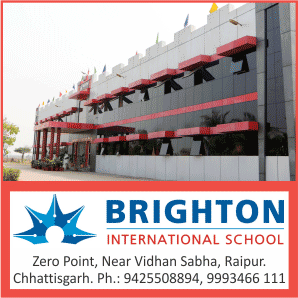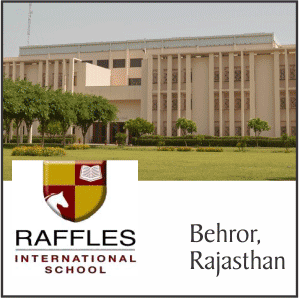Gujarat Self-Financed School (Regulation of Fees Bill) 2017 passed
Gujarat Legislative Assembly passed the much anticipated Gujarat Self-Financed School (Regulation of Fees Bill) 2017 on Thursday in a move that will bring relief to lakhs of parents struggling to pay exorbitant fees to give quality education to their children.
The Bill that covers all private self financed schools affiliated to state education board, ICSE, CBSE or IB in the state fixes the upper limit for fees for primary schools at Rs 15,000, secondary schools at 25,000 and higher secondary schools at Rs 27,000 applicable from academic year 2017-18. Schools that violate the provisions will attract a penalty of up to Rs 5 lakh for the first offence, between Rs 5 lakh-10 lakh for the second offence while their approval will be cancelled or NOC revoked for third offence.
Independent playgroups, pre-primary schools and crèches are not included in the provisions of the Bill. However, the Bill will apply to all schools running playgroup, nursery, Junior KG and Senior KG divisions, norms for which are likely to be announced soon. “There was a need for an independent law to control and even punish elements that have put a blot on the sacred field of education and the Bill has been presented with this intention,“ Chudasama said while presenting the bill.
There are 9,384 primary schools, 3,831 secondary schools and 3,032 higher secondary selffinanced schools in the state. From now on, school managements will have to justify the fee hike before the regulatory body. Schools that want to charge fees higher than that approved will have to approach the fee regulatory committee in each of the four zones of the state -Ahmedabad, Vadodara, Rajkot and Surat. Each committee be headed by a retired district judge retired additional district judge retired IAS officer (principal secretary level) or retired IPS official (ADGP level).
The other members, as decided by the state government, will include a representative of the management committee of a self-finance school, a chartered accountant, a civil engineergovernment approved valuer and an educationist. The district education officer or district primary education officer will be the coordinator to give administrative assistance to the committee.
From now on, schools will have to give an affidavit that will be scrutinised and fees will be decided in a hearing. Schools that have already collected fees in advance will have to refund the fees after a final decision of fees by the regulatory committee.
Schools that violate provisions of the Bill will have to refund double the additional fees taken from students. The fees will have to be refunded within 15 days of the order and thereafter will attract an additional interest of one per cent until the date of payment.
The committee has the right to act suo moto or based on complaints received by parents or any other entity. However, schools will be given ample opportunity to be heard.
Key pointers to Fee Regulation Bill
What about pre-school?
The pre-school and play groups will not fall under fee regulation committee. There is no regulation on play groups.
Government sources said there is no plan in near future to regulate fees in pre-school (playgroup, nursery, Junior KG and Senior KG). However, all schools running own pre school divisions from play group to senior KG will come under the provision of the Bill.
Norms for such pre-schools will be announced soon.
Can school charge admission fees?
Yes, schools will be allowed to charge admission fees. The total annual fee, including the admission fee, should not exceed Rs 15,000 for primary, Rs 25,000 for high school and Rs 27,000 for higher secondary. Any school willing to extend this limit will have to approach the Zonal Fee Regulatory committee.
How will the govt implement it?
The government is in no mood to relent. Any school that has not followed the norms will have to pay a penalty of Rs 5 lakh for the first time offence, Rs 5 to 10 lakhs for second time while a third offence will result in cancellation of registration. Delayed payment of fine will result in levy of interest.
How will the committee enforce norms?
The Fee Regulatory Commit tee has been given power to take suomoto action against errant schools. It will also accept complaints from the parents. The committee will have power to cancel the registration of schools not following fee norms.

Source – Ahmedabad Miror – 31st April 2017















